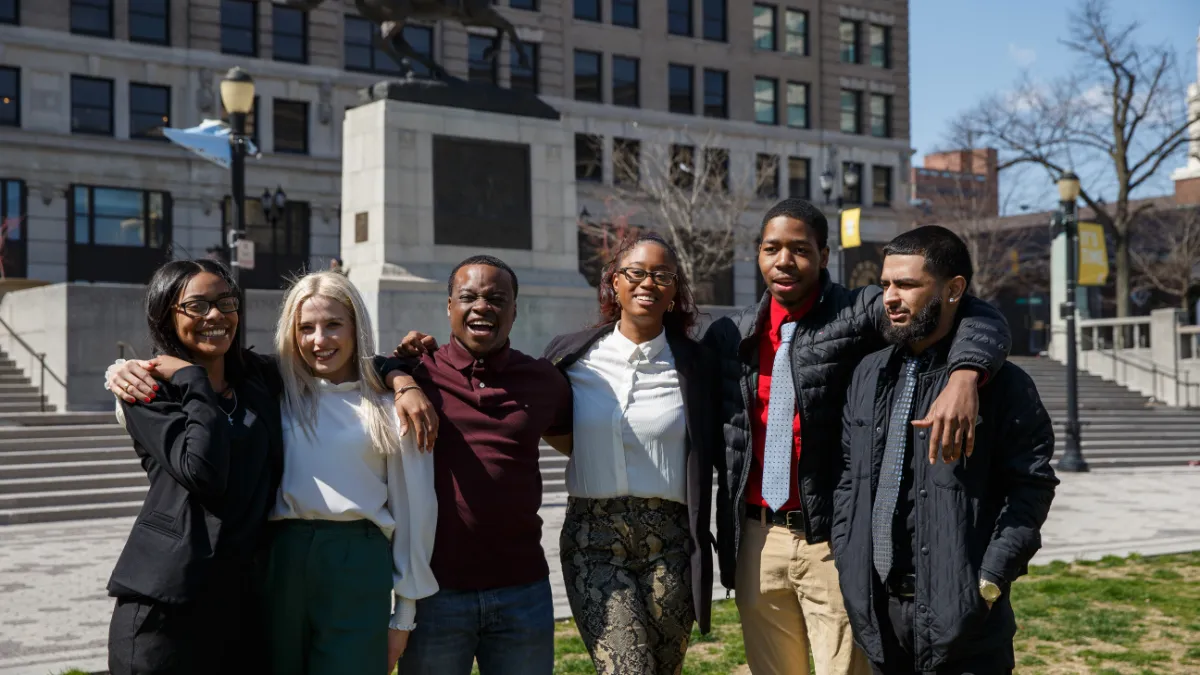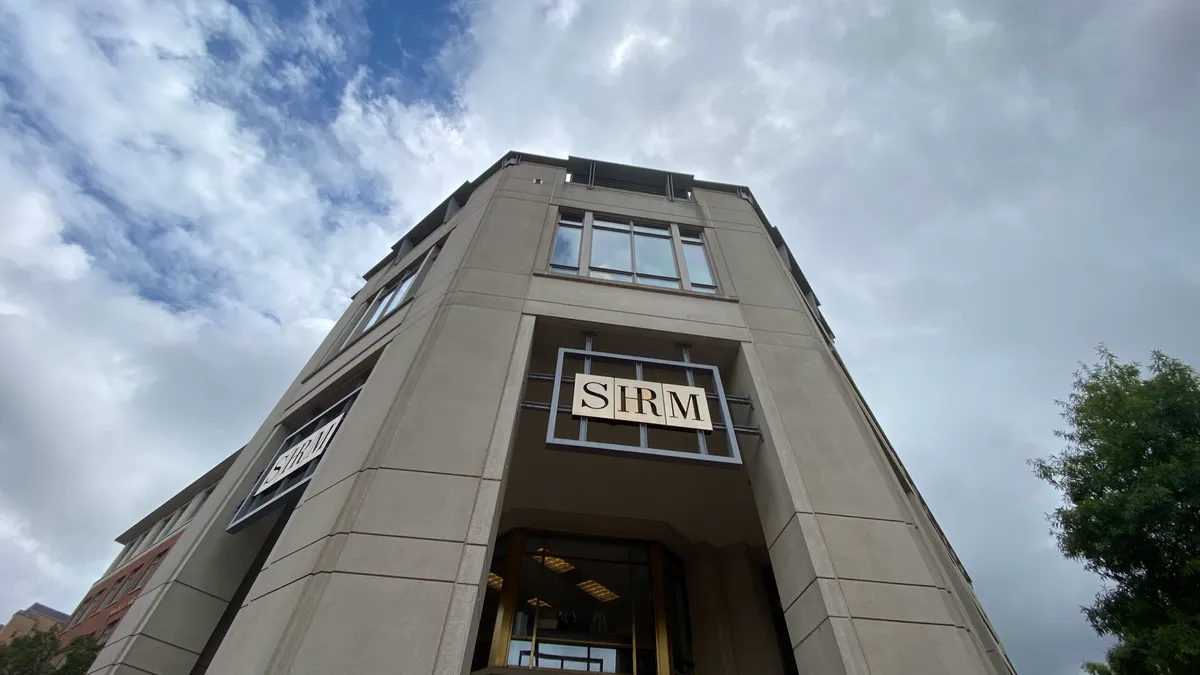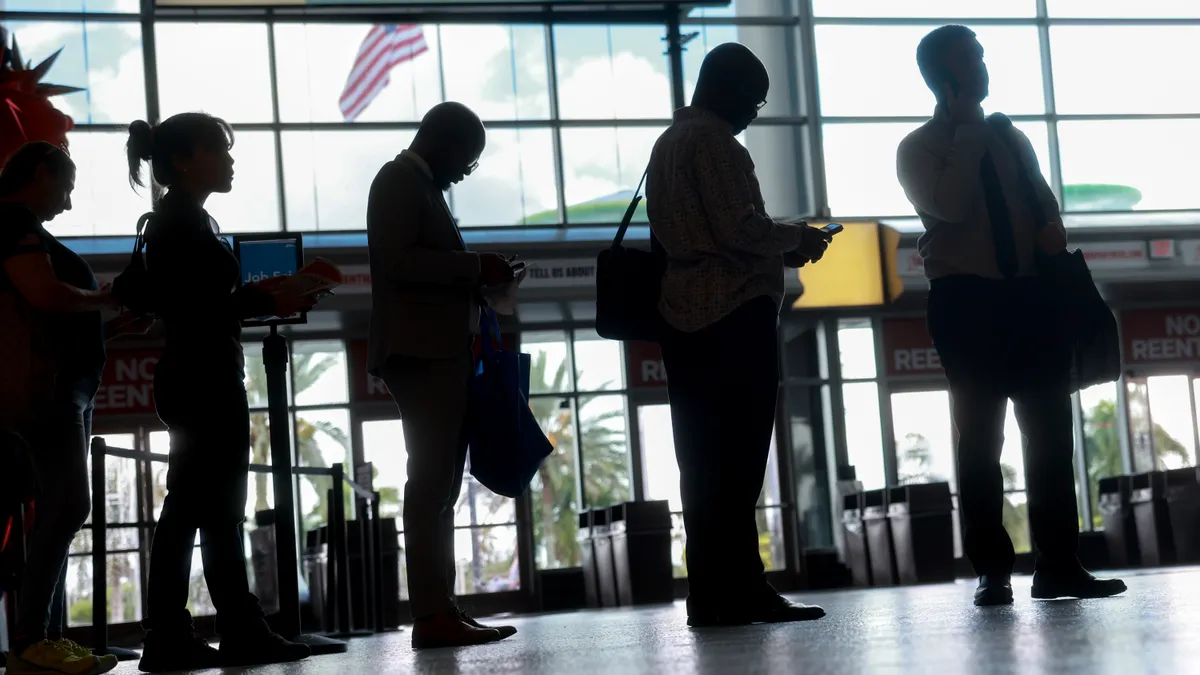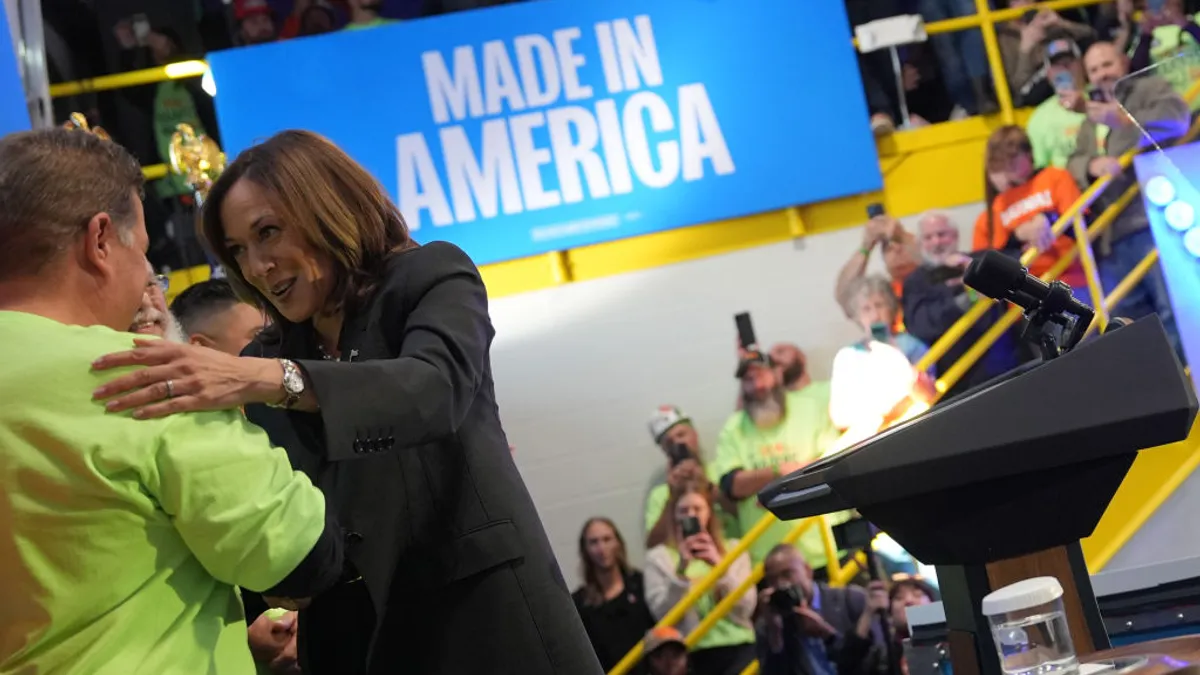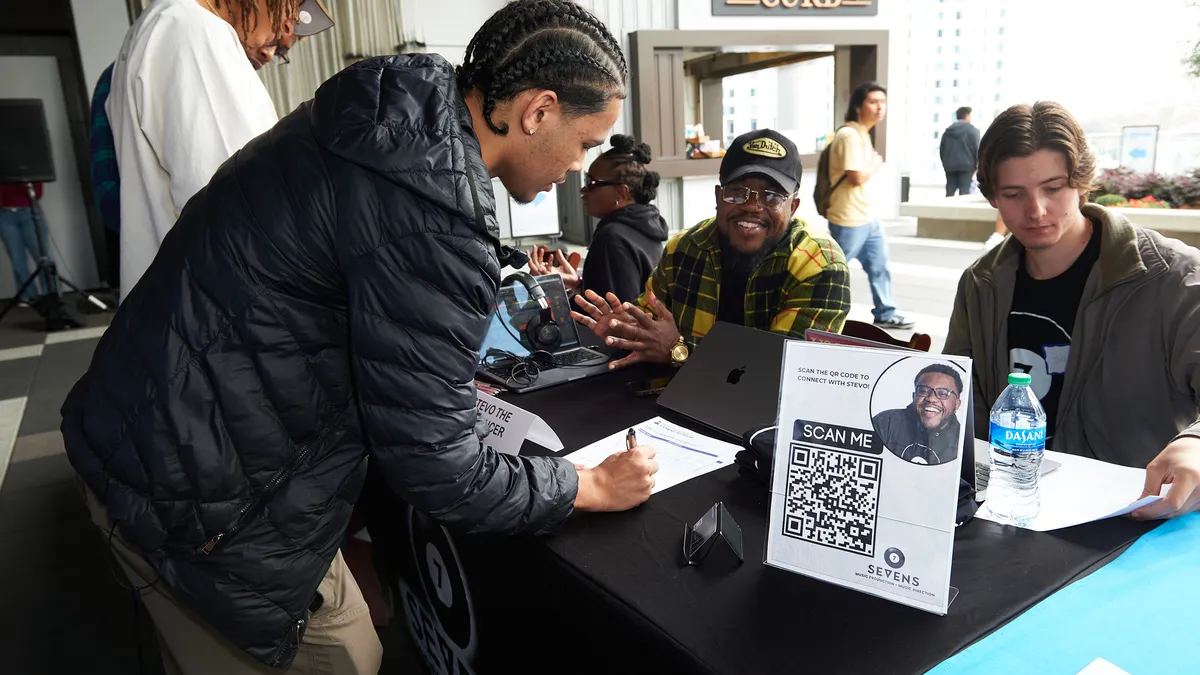Diversity, equity and inclusion should be at the center of talent strategies during the COVID-19 pandemic, according to experts. Amid times of crisis and high-unemployment, employers seeking to build diverse talent pipelines and fill entry-level positions may benefit from nontraditional methods of recruiting such as impact hiring, according to Alexandra D. Rudnick, a program leader at Generation USA.
"For us, [impact hiring] means matching opportunity learners or 'talent'" who are "often left out of a typical hiring pipeline predominantly because of historical barriers," Rudnick told HR Dive.
Generation USA, an affiliate of Generation, the independent nonprofit organization founded in 2014 by McKinsey & Company, works with HR recruiters at companies to match individuals based on their needs and their skills. Many talented and motivated young adults with a high school diploma or equivalent — some of whom may have even taken a few college courses — don't have access to training and employment, Rudnick said. Generation has affiliates in 14 countries and works with about 3,900 employer partners to "tackle the most persistent barriers to young people searching for stable employment," McKinsey & Company said in a blog post. More than 38,000 people have graduated from Generation programs, according to the organization.
Practicing impact hiring may also mean companies must work to remove some of the barriers to employment. "It's a willingness to look at talent, who maybe don't fit your typical hiring profile for any number of reasons," Rudnick said.
For example, it may be necessary to review internal policies about applicants with criminal records, she said. "Impact hiring would mean looking at that and saying, 'Are these really necessary? Do we really need to exclude people for x, y and z? Or is there more flexibility in there?'" she said. Studies have shown that racial inequity exists within the criminal justice system, such as research by the Stanford Center on Poverty & Inequality. Working with an organization like Generation is a "win win" because the talent introduced to companies have been "sort of vetted, in a sense, by us," Rudnick said.
"Impact hiring can provide the employer with the data they need to vet applicants who might lack experience but are well-suited to succeed in available positions," Sean Segal, CEO of Generation USA, said in a statement. "If you go beyond the surface, impact hiring presents a great opportunity for employers, employees and economic health."
Opening new talent pipelines
Amid the COVID-19 pandemic, between March and April, the share of Americans ages 16 to 24 who were "disconnected" from work and school "jumped significantly," from 12% to 20% compared to the beginning of 2020, according to Pew Research Center. By June, that percentage increased to 28%, the report stated. The disconnection rates are even greater for Native American, Black and Latino individuals ages 16 to 24, according to Measure of America, a project of the Social Science Research Council. The jobless rate decline in July for Black Americans was smaller than the national average.
The purpose of impact hiring "is really working to open up new and more diverse pipelines of talent, and working to keep them there," Rudnick said. Generation USA, based in Washington, D.C., currently has programs in 14 cities, according to the organization. Traditionally, the program focused on adults ages 18 to 29, but as the organization grew, it began serving adults of all ages, Rudnick said. A free bootcamp-style training curriculum ranging from five weeks or more teaches program participants soft skills and behavioral and mindset skills for the workplace, Rudnick said. Generation also partners with employers to reskill workers for in-demand jobs.
"Our methodology includes employers and our learners," Rudnick said. "We really try to gather data throughout our training process and after to make sure that we're doing the best job we can and can adjust."
The Mayo Clinic in Jacksonville, Florida, is an employer that hires Generation graduates, Rudnick said. The relationship started with executive leadership at the hospital where an agreement was made around hiring and interviewing, and "then from there, we really worked directly with recruiters," she said.
Generation offers training for informational technology and administrative medical assistant careers as well as customer service at the Jacksonville location. The organization connects recruiters at the Mayo Clinic with its program graduates at hiring events, which are now held online, Rudnick said.
"We work with a diversity recruiter, so they actually have someone on staff who's looking at bringing in talent of color; and she's wonderful," Rudnick said.
In partnerships with colleges and organizations across the country, including Verizon, Generation USA has committed to train 500,000 students by 2030. "In response to the pandemic, we are really focusing on the tech field," Rudnick said. The organization offers classes within the tech sector including a "Java development class like Junior Java, so these are all entry level, a cloud tech class and an entry level, IT help desk class," she said.
Klaus Schwab, founder and executive chairman of the World Economic Forum, said companies need to engage in a "global skills revolution," during re:Invent 2020, a recent Amazon Web Services conference. The technical positions — big data specialists, digital marketing and strategy specialists, data analysts/scientists and artificial intelligence specialists — will be in demand in the future, Schwab said.
The classes at Generation USA provide participants with the technical skills "they need to get their foot in the door," but "there still needs to be training and support in the workplace," Rudnick said.



